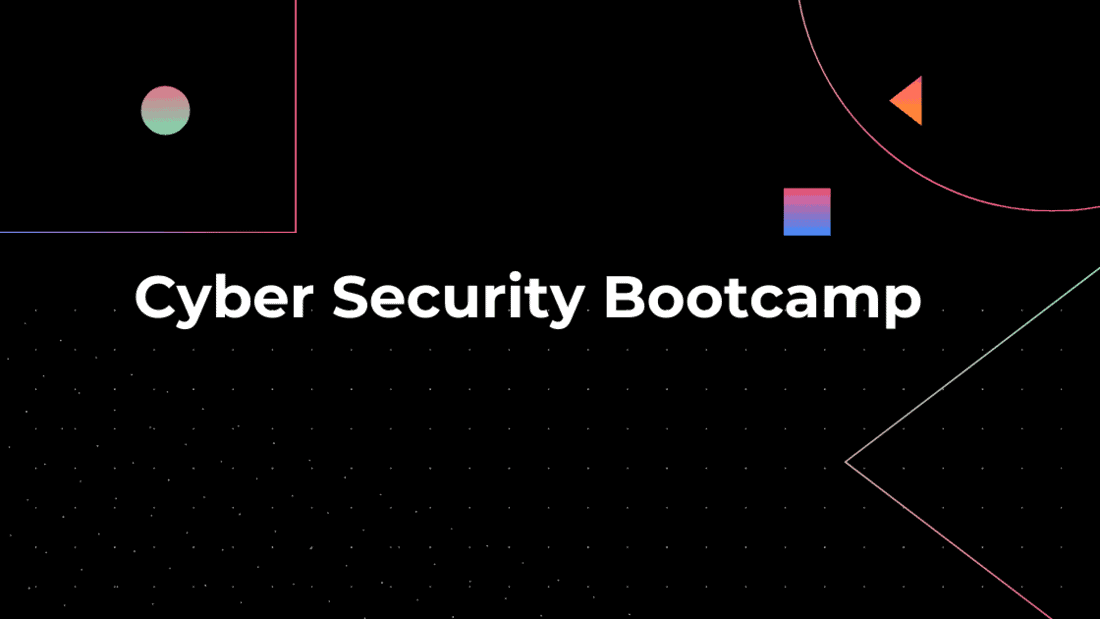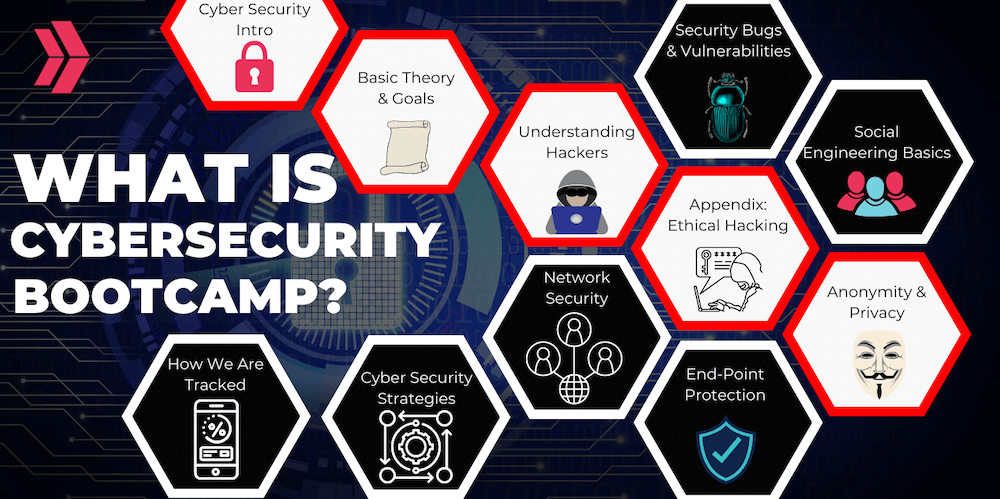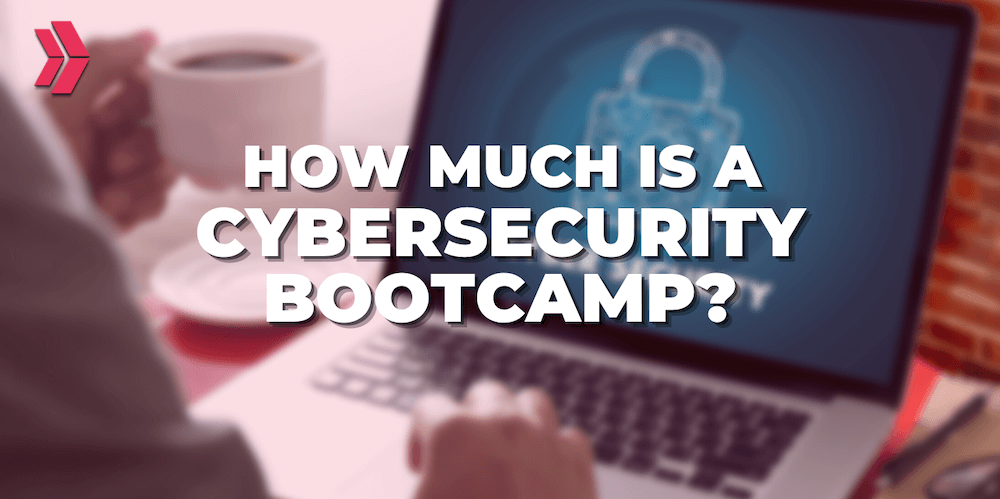As you consider breaking into Cybersecurity, you may have come across cybersecurity bootcamps, which claim to provide the necessary skills and education in a short, intensive format. The question on your mind may be: Are cybersecurity bootcamps worth it for getting a job in the field?

There are both legitimate and scam cybersecurity bootcamps out there, and it’s crucial to research before enrolling. A 24-week cybersecurity bootcamp has the potential to provide valuable knowledge.
Still, finding a reputable program with a strong track record of helping graduates secure employment in the field is essential.
When evaluating a bootcamp, look for features such as industry partnerships, experienced instructors, and success stories from past graduates.
While there are no guarantees, a well-structured bootcamp can give you the skills and connections needed to boost your job prospects in cybersecurity.
Cybersecurity Bootcamps Overview
Understanding Cybersecurity Bootcamps

Cybersecurity bootcamps are intensive training programs designed to help you quickly gain the skills and knowledge needed for a career in cybersecurity.
These bootcamps typically last from a few weeks to several months and are focused on teaching practical skills in various areas of IT.
It’s important to note that while cybersecurity bootcamps can effectively provide you with valuable skills, you may need more than a job.
However, they can significantly boost your chances of finding employment in the cybersecurity industry, as they are designed to develop in-demand skills and create a solid foundation in the subject matter.
Types of Bootcamps
There are several different types of cybersecurity bootcamps, each with its unique features and focus areas:
- Online Bootcamps:
These bootcamps are delivered via online learning platforms, allowing you to participate in coursework and gain valuable cybersecurity skills from home.
Online bootcamps can be self-paced or instructor-led and may also offer live sessions, mentorship, and access to online resources. - In-person Bootcamps:
In-person bootcamps are held at physical locations and usually offer more hands-on training and networking opportunities.
These bootcamps may also provide access to equipment, labs, and other resources that are difficult to replicate online. - Hybrid Bootcamps:
Hybrid bootcamps combine online and in-person learning, allowing you to master cybersecurity skills through digital coursework and hands-on training in a classroom setting.

When choosing the type of bootcamp best suited for your needs, it’s essential to consider factors such as your schedule, learning preferences, and location.
It’s also crucial to research the bootcamp’s reputation, curriculum, and success stories to ensure that it can provide the necessary skills and training that you’re searching for to excel in the cybersecurity field.
Pros and Cons of Cybersecurity Bootcamps
Benefits
Cybersecurity bootcamps offer numerous advantages, including accelerated learning, hands-on experience, and job placement support. Some of the primary benefits include:
- Fast-paced learning:
These bootcamps usually last a few months, so you can quickly gain the skills and knowledge needed to jumpstart your cybersecurity career. - Practical experience:
Many bootcamps focus on real-world projects, allowing you to apply your learning to practical scenarios and enhance your problem-solving abilities. - Networking opportunities:
Attending a bootcamp can connect you with experienced instructors, mentors, and fellow students, building valuable relationships within the cybersecurity industry. - Career services:
Many bootcamps offer career coaching and job placement support, helping you find a job after completion.
Sometimes, this assistance can increase your likelihood of securing an entry-level position.
Drawbacks
Despite their benefits, cybersecurity bootcamps also have some drawbacks that you should consider:

- Cost:
Bootcamps can be expensive, with some programs costing thousands of dollars. This expense may be challenging, particularly for those without a solid financial background. - Time commitment:
While bootcamps can quickly train you for a cybersecurity career, they often require a significant time commitment.
Balancing work, family, and other personal obligations with bootcamp requirements can be challenging. - No job guarantee:
Although many bootcamps provide job placement support, they do not guarantee a cybersecurity job after completion.
Your success may depend on factors such as background, personal motivation, and ability to network within the industry. - Limited depth of knowledge:
Bootcamps often focus on foundational skills and specific technical competencies.
Consequently, you may only acquire the comprehensive knowledge needed to tackle complex or high-level cybersecurity challenges with further education or certifications.
Note:
Before choosing this path, carefully weigh the pros and cons and consider your career goals, time commitments, and financial circumstances.
Comparing Bootcamps vs. Traditional Education
Bootcamps vs. Bachelor’s Degree

When considering a cybersecurity career, you may wonder whether a bootcamp or a bachelor’s degree is the better choice for your education.
Cybersecurity bootcamps are typically shorter, focused programs designed to teach you the necessary skills for entry-level positions quickly. These programs often last between 12-24 weeks and can be taken online or in person.
On the other hand, a bachelor’s degree in cybersecurity or a related field typically takes four years to complete.
This traditional education route offers more comprehensive and structured learning, including general education requirements and a wider variety of courses within the major.
Some key aspects to consider when comparing bootcamps and bachelor’s degrees:
- Time investment:
Bootcamps can quickly get you up to speed, while bachelor’s degrees take longer. - Cost:
Bootcamps are less expensive than a traditional four-year degree. - Curriculum:
Bachelor’s programs offer a broader range of knowledge, while bootcamps focus on specific skills necessary for the job market. - Networking opportunities:
Universities often provide more opportunities for networking and job placement than bootcamps.
Bootcamps vs. Master’s Degree

You may also consider comparing cybersecurity bootcamps with master’s degrees. A master’s degree in cybersecurity can take around two years to complete, following completing a bachelor’s degree.
Therefore, these programs are ideal if you seek a more specialized and advanced understanding of cybersecurity, potentially leading to higher-level positions.
When comparing bootcamps with master’s degrees, consider the following factors:
- Career goals:
If you aim to reach higher-level positions or work in specialized areas of cybersecurity, a master’s degree may be more beneficial. - Prior experience:
Bootcamps are typically geared toward those with little or no previous experience in cybersecurity. In contrast, a master’s program often requires a relevant bachelor’s degree or professional experience. - Cost:
Similar to comparing bootcamps and bachelor’s degrees, bootcamps are often more affordable than obtaining a master’s degree. - Credibility:
Holding a master’s degree can signal a higher level of expertise to employers.
As you weigh your options, remember that your personal goals, career aspirations, and financial circumstances should significantly influence your decision-making process.
Key Factors to Consider When Choosing a Bootcamp
There are several factors to consider when considering whether a cybersecurity bootcamp is worth it.
This section will discuss the aspects you should assess before deciding: Location, Time Commitment, Cost, Employer Connections, and Academic Reputation.

Location
The location of the bootcamp plays a vital role in your learning experience. You want to ensure that your learning environment is conducive to your comfort and accessibility.
Consider whether the bootcamp offers in-person or online courses, as well as the availability of nearby resources and networking opportunities.
If you’re taking an online course, ensure you have a reliable internet connection to access lectures on network security and other essential topics.
Time Commitment
Cybersecurity bootcamps can vary in length and intensity. Assess your current schedule and commitments before deciding on a BootCamp.
Some bootcamps may require a full-time commitment, while others offer part-time programs, allowing you to learn at your own pace.
Remember the demand for cybersecurity professionals and the time it takes to study various threats and networks to ensure you select a program that suits your goals and availability.
Cost
The cost of a cybersecurity bootcamp can range from a few thousand to several thousand dollars.
Therefore, weighing the benefits against the expense and evaluating your financial situation while exploring possible funding options, such as scholarships or employer assistance programs, is essential.

Investing in your education can lead to a rewarding career in a high-demand field, but you should always stay within budget.
Employer Connections
One of the main advantages of attending a bootcamp is the potential for networking and employer connections. Many bootcamps partner with companies actively seeking cybersecurity professionals and offer job placement assistance upon program completion.
When evaluating a bootcamp, research their track record of successful hiring outcomes and connections with reputable companies in the industry.
Academic Reputation
Lastly, it would help to consider the academic reputation of the bootcamp you’re interested in attending.
Look for programs with experienced instructors with a strong background in cybersecurity and a comprehensive curriculum covering critical areas like network security, emerging threats, and security for various networks.
You should also check for industry-recognized certifications or credentials offered by the bootcamp, as these can significantly enhance your employability after you complete the program.
Preparing for a Cybersecurity Bootcamp
Assessing Your Skills
Before diving into a cybersecurity bootcamp, assessing your current skills and knowledge is essential.
Cybersecurity professionals typically need a strong foundation in programming, cryptography and familiarity with scripting languages like Python.
To determine your skills, examine your background in:
- Programming:
Do you have experience in programming or scripting languages? Familiarity with languages like Python, Java, or JavaScript can benefit cybersecurity professionals. - Cryptography:
Have you studied encryption, hashing algorithms, and authentication systems? - Networking:
Are you familiar with network protocols, firewalls, and routers?
By evaluating your skills, you can determine where to focus your efforts to prepare for a cybersecurity bootcamp.
Learning the Basics

Once you’ve assessed your skills, you can learn the basics for a successful bootcamp experience. This includes gaining a solid understanding of the following:
- Programming languages:
Mastering languages like Python is crucial for scripting and automation in cybersecurity roles. - Cryptography techniques:
Learn about encryption algorithms, digital signatures, and public key infrastructure. - Networking concepts:
Understand network topologies, IP addressing, and routing.
It’s also essential to familiarize yourself with common cybersecurity terminology and best practices.
This foundational knowledge will ensure you’re ready to tackle the more advanced aspects of a cybersecurity bootcamp.
Researching Bootcamps
With a firm grasp of the basics, it’s time to research potential cybersecurity bootcamps. Consider the following factors when choosing a bootcamp:
- Curriculum:
Look for bootcamps covering essential topics like programming, cryptography, and network security. Some programs may also specialize in specific areas, such as ethical hacking or incident response. - Job placement:
Investigate bootcamps with solid job placement records, which indicate a high likelihood of helping you land a job upon completion. Some bootcamps even offer job guarantees or job placement assistance. - Reputation:
Seek out bootcamps with positive reviews and successful alumni, indicating the program quality and training you’ll receive.
Remember, selecting the right bootcamp is crucial for ensuring a positive experience and increasing your chances of landing a job in the cybersecurity field.

Once you’ve chosen a bootcamp, you’ll be well on your way to becoming a skilled cybersecurity professional.
Post-Bootcamp: Job Hunt and Career Success
Job Search Strategies
After completing a cybersecurity bootcamp, you’ll want to maximize your chances of landing a job in the industry. So first, create a strong resume highlighting your newly acquired skills and any relevant experience.
Then, tailor your resume and cover letter to each specific position you apply for, emphasizing how your background aligns with the employer’s requirements.
Craft a compelling LinkedIn profile as well. For example, use keywords such as “cybersecurity analyst” or “risk management” to increase your visibility to recruiters.
Also, network with professionals in the field through LinkedIn or industry events. This will help you gain insights into available opportunities and expand your connections.
Leveraging Bootcamp Connections
As you embark on your job search, remember to take advantage of the resources and connections you’ve made during your bootcamp.
Many bootcamps offer career services, including resume reviews, interview coaching, and job leads.
They might also have relationships with companies actively hiring cybersecurity professionals.
In addition, stay in touch with your bootcamp instructors and peers for job leads, as they may know of openings or have connections with employers seeking entry-level cybersecurity analysts.
Continued Learning and Certifications
In the ever-evolving field of cybersecurity, staying up-to-date with the latest trends and technologies is essential.
Pursue continued education opportunities like webinars, courses, and industry news to deepen your knowledge and stay ahead of potential threats.
Additionally, consider obtaining security certifications, like CISSP, which employers highly value. Certifications not only demonstrate your proficiency in cybersecurity but also signify your commitment to career growth.
Earning relevant certifications can boost your job prospects and help you achieve your career goals in the cybersecurity industry.
To summarize, job search strategies, leveraging bootcamp connections, and engaging in continuous learning and certifications can be worth it when trying to break into the field or enhance your existing knowledge and skills.
They provide career support, networking opportunities, and access to industry professionals, which is invaluable when transitioning into a cybersecurity role.
However, it’s essential to carefully research and choose a trustworthy bootcamp that aligns with your specific goals and needs.
Ultimately, the value of a cybersecurity bootcamp will depend on your dedication, commitment, and ability to leverage the knowledge gained to secure meaningful career opportunities in the field.
I wish you all the best, and you stay cultivated.

